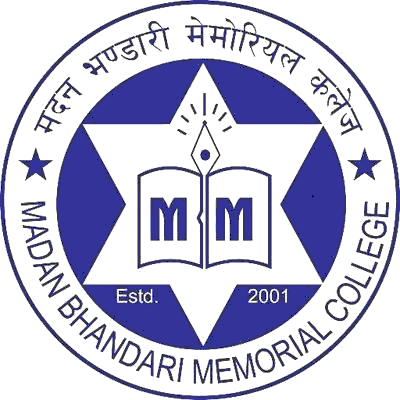Overview
Central Department of Rural Development (CDRD), Tribhuvan University: Advancing Rural Development Education in Nepal
Established in 2001, the Central Department of Rural Development (CDRD) at Tribhuvan University is a renowned institution offering a comprehensive Master of Arts (MA) program in Rural Development. As one of the Central Departments under the Faculty of Humanities and Social Sciences, CDRD has been at the forefront of promoting rural development education for over a decade and a half. The department also facilitates a PhD program in Rural Development, providing a platform for students to engage in impactful doctoral research with critical input from experienced faculty members.
In a country like Nepal, where rural areas still constitute a significant portion of the population, rural development plays a crucial role in overall national progress. With 61 percent of local levels being Rural Municipalities out of a total of 753, and urban local levels making up the remaining 39 percent, it is evident that rural development is vital for the country's development. Recognizing this, CDRD emphasizes the need for scientific and multidisciplinary approaches to rural development, drawing upon theoretical insights from various academic disciplines.
Tribhuvan University, understanding the importance of human resources in the development process, established CDRD to produce skilled professionals who can contribute effectively to the nation's growth, particularly in rural development. CDRD, as one of the central departments under the Faculty of Humanities and Social Sciences, has been fulfilling this responsibility since its inception in 2001.
The department's objectives are two-fold. Firstly, CDRD aims to produce highly competent Rural Development practitioners who possess the multidisciplinary knowledge and skills necessary for the effective implementation of development initiatives. As the first department within the Faculty of Humanities and Social Sciences focusing on rural development, CDRD equips students with comprehensive insights into both general and rural development practices.
Secondly, CDRD strives to provide students with the requisite theoretical and practical knowledge essential for pursuing a doctoral degree in Rural Development successfully. Upon completing the MA program, students aligned with the first objective often choose to work in governmental and non-governmental organizations, actively participating as development practitioners. Conversely, students aligned with the second objective pursue a doctoral degree, preparing themselves for future academic careers.
Initially, CDRD offered an MA program in Rural Development based on a non-semester system (yearly system) from 2001 to 2013. In an ongoing effort to enhance the quality of education, CDRD, in line with other central departments under Tribhuvan University, transitioned to a semester system-based MA program in Rural Development in 2014. Subsequently, all colleges in the Kathmandu Valley, affiliated with TU and its constituents, also adopted the semester system. TU plans to expand semester-based MA programs across the country in various subjects in the near future.
Over the past 16 years, the field of Rural Development has witnessed significant growth in Nepal. It is now taught at the Bachelor's and Master's levels in affiliated colleges under Tribhuvan University and its constituent colleges nationwide. Additionally, it has been incorporated into the school education system at grades 11 and 12. CDRD has played a pivotal role in the expansion and promotion of rural development as an academic discipline throughout the country.
Through its commitment to excellence in education and its multidisciplinary approach, the Central Department of Rural Development at Tribhuvan University continues to contribute significantly to the development of rural areas in Nepal, empowering individuals with the knowledge and skills to bring positive change to their communities and the nation as a whole.
Objectives:
The Central Department of Rural Development (CDRD) at Tribhuvan University has set forth clear objectives to ensure the comprehensive development of its students and their ability to contribute effectively to rural development in Nepal. The objectives of CDRD's M.A. program in Rural Development are as follows:
-
Multidisciplinary Knowledge: The program aims to provide students with a thorough understanding of the multidimensional aspects of rural development in Nepal. It equips them with a multidisciplinary theoretical knowledge base, enabling them to analyze and address the complex challenges faced by predominantly rural countries like Nepal.
-
Competent Rural Development Cadre: CDRD's objective is to produce highly skilled rural development professionals who can serve as competent cadres in the government and non-governmental sectors. The program focuses on developing experts capable of fulfilling the demand for skilled rural development practitioners both within Nepal and beyond its borders.
-
Conceptual Knowledge: The syllabus of the M.A. program in Rural Development is designed to equip students with the necessary conceptual knowledge of rural development. They gain a deep understanding of the theories and frameworks that underpin effective rural development practices.
-
Practical Application: CDRD aims to bridge the gap between theory and practice by enabling students to translate their theoretical knowledge into practical solutions. The program equips them with the skills to address the current needs of rural communities and implement effective development strategies.
-
Analysis of Rural Socio-political and Economic Issues: Students are trained to analyze specific issues related to rural socio-political and economic dynamics. They develop the ability to critically examine and understand the complexities and nuances of rural society, enabling them to design targeted interventions.
-
Research Skills: CDRD emphasizes the development of research skills among students. They are trained to conduct empirical research on various rural development issues, drawing on multidisciplinary insights. This enables them to contribute to evidence-based decision-making and policy formulation.
-
Technology Adoption: The program aims to enable students to effectively communicate and convince rural communities about the selection and utilization of appropriate technologies. They learn to assess local contexts and identify suitable technologies that can empower rural populations and enhance their well-being.
-
Local-level Planning: Students are equipped with the skills to formulate rural development plans at the local level. They learn to engage with stakeholders, assess community needs, and design comprehensive development plans that address the specific challenges and opportunities of rural areas.
-
Independent Project Management: CDRD prepares students to handle independent rural development projects with confidence. They gain the necessary skills in project management, leadership, and problem-solving, enabling them to take on leadership roles and make a positive impact in rural communities.
Outcomes:
The MA program in Rural Development at CDRD aims to produce graduates who possess the necessary knowledge, skills, and abilities to contribute effectively to the rural development process in Nepal. Upon completing the program, students can expect the following outcomes:
-
Development Workers in Rural Areas: Graduates will be equipped with transferable skills that enable them to work as development practitioners in rural areas. They will have a deep understanding of rural development processes, allowing them to contribute to the implementation of development initiatives in coordination with local stakeholders and development policy makers.
-
Facilitators of Action Research: Students will develop the skills to facilitate action research, allowing them to actively engage with communities and conduct research that addresses specific rural development issues. They will be able to apply research methodologies and gather valuable insights to inform development interventions and policies.
-
Managers of Advocacy Programs: Graduates will have the ability to manage advocacy programs focused on rural development. They will be able to advocate for the rights and needs of rural communities, raising awareness and mobilizing resources to support sustainable development initiatives.
-
Facilitators between Local Bodies and Development Agencies: MA program graduates will serve as effective facilitators and intermediaries between local bodies, such as rural municipalities, and development agencies. They will possess the skills to bridge the gap and facilitate collaboration and partnership between different stakeholders for the successful implementation of rural development projects.
-
Resources Persons and Facilitators in Development Strategies: Graduates will have the expertise to serve as resources persons and facilitators, utilizing development strategies to assess, determine, and sustain social and economic development criteria in rural communities. They will contribute to the design and implementation of effective development plans that address the specific needs and aspirations of rural populations.
-
Animators with Performance Skills: The program nurtures graduates with performance skills, enabling them to act as animators who can engage and mobilize rural communities effectively. They will possess the ability to utilize creative and participatory approaches to encourage community involvement, foster dialogue, and inspire collective action towards sustainable rural development.
-
Local Development Planners: Upon completion of the MA program, students will possess the skills and knowledge required to work as local development planners. They will be able to analyze local contexts, identify development priorities, and design comprehensive and contextually relevant plans that contribute to the holistic development of rural areas.
Strategies:
The Central Department of Rural Development (CDRD) at Tribhuvan University implements various strategies to enhance and strengthen the academic environment and promote rural development. The following activities are undertaken to achieve these objectives:
-
Collaboration with Development Stakeholders: CDRD works in coordination with governmental organizations (GOs), non-governmental organizations (NGOs), and international non-governmental organizations (INGOs) in different development sectors. This collaboration ensures practical exposure for students and facilitates the exchange of knowledge and expertise between academia and development practitioners.
-
Academic Linkages: CDRD establishes academic linkages with national and international universities and institutions. This enables the department to engage in exchange programs, joint research projects, and faculty/student exchanges. Collaborations with renowned institutions foster an environment of academic excellence and facilitate the exchange of best practices in rural development.
-
Talk Programs, Seminars, and Symposia: CDRD organizes regular talk programs, seminars, and symposia to provide a platform for scholars, experts, and practitioners to share their knowledge and experiences. These events contribute to intellectual discussions, critical analysis, and the dissemination of new insights and ideas related to rural development.
-
Development of the Library as a Resource Center: CDRD focuses on developing its existing library into a comprehensive resource center. The resource center will house a wide range of academic literature, research reports, journals, and other reference materials related to rural development. This initiative aims to provide students and faculty with easy access to relevant resources for their studies and research.
-
Research on Rural Development Themes: CDRD actively conducts research on various rural development themes. This research is aimed at generating evidence-based knowledge and insights that contribute to the understanding and improvement of rural development practices. The department disseminates research findings among relevant rural development stakeholders to facilitate informed decision-making and policy formulation.
-
Academic Journal and Newsletters: CDRD publishes an academic journal on a regular basis, titled "Nepalese Journal of Development and Rural Studies." This journal serves as a platform for scholarly articles, research papers, and case studies on rural development. Additionally, the department publishes newsletters to share updates, achievements, and relevant information with the academic community and stakeholders.
By implementing these strategies, CDRD aims to foster a vibrant academic environment, promote research and knowledge exchange, and contribute to the development of innovative approaches and practices in rural development.
Courses Offered:
The Central Department of Rural Development (CDRD), Tribhuvan University offers the following courses in the field of Rural Development:
1. Master of Arts in Rural Development (MA in RD): The MA in Rural Development (MRD) program is designed to provide students with a comprehensive understanding of the theories, concepts, and practices related to rural development. The program focuses on multidisciplinary insights into rural development, equipping students with the knowledge and skills required for effective rural development planning, implementation, and management. The program covers subjects such as rural sociology, economics, governance, sustainable development, research methods, and project management. The MRD program aims to produce competent rural development practitioners capable of addressing the challenges and opportunities in rural areas.
2. Doctor of Philosophy in Rural Development (PhD in RD): The PhD in Rural Development (PhD in RD) program is a research-focused program that aims to produce scholars and researchers who can contribute to the advancement of knowledge in the field of rural development. The program allows students to conduct in-depth research on specific rural development topics of their interest under the guidance of experienced faculty members. The PhD in RD program emphasizes rigorous research methodologies, critical analysis, and the generation of new knowledge in rural development. It prepares students for academic and research careers, enabling them to make significant contributions to the field through their doctoral research.
Both the MA in Rural Development and PhD in Rural Development programs offered by CDRD provide students with a strong foundation in rural development theories, practical skills, and research capabilities. These programs contribute to the development of professionals and scholars who can address the unique challenges and complexities of rural development in Nepal and beyond.
Contact Central Department of Rural Development Tribhuvan University's administrative office for detailed information on the course, admissions, location, fees, scholarships, facilities, counseling, or eligibility.

















